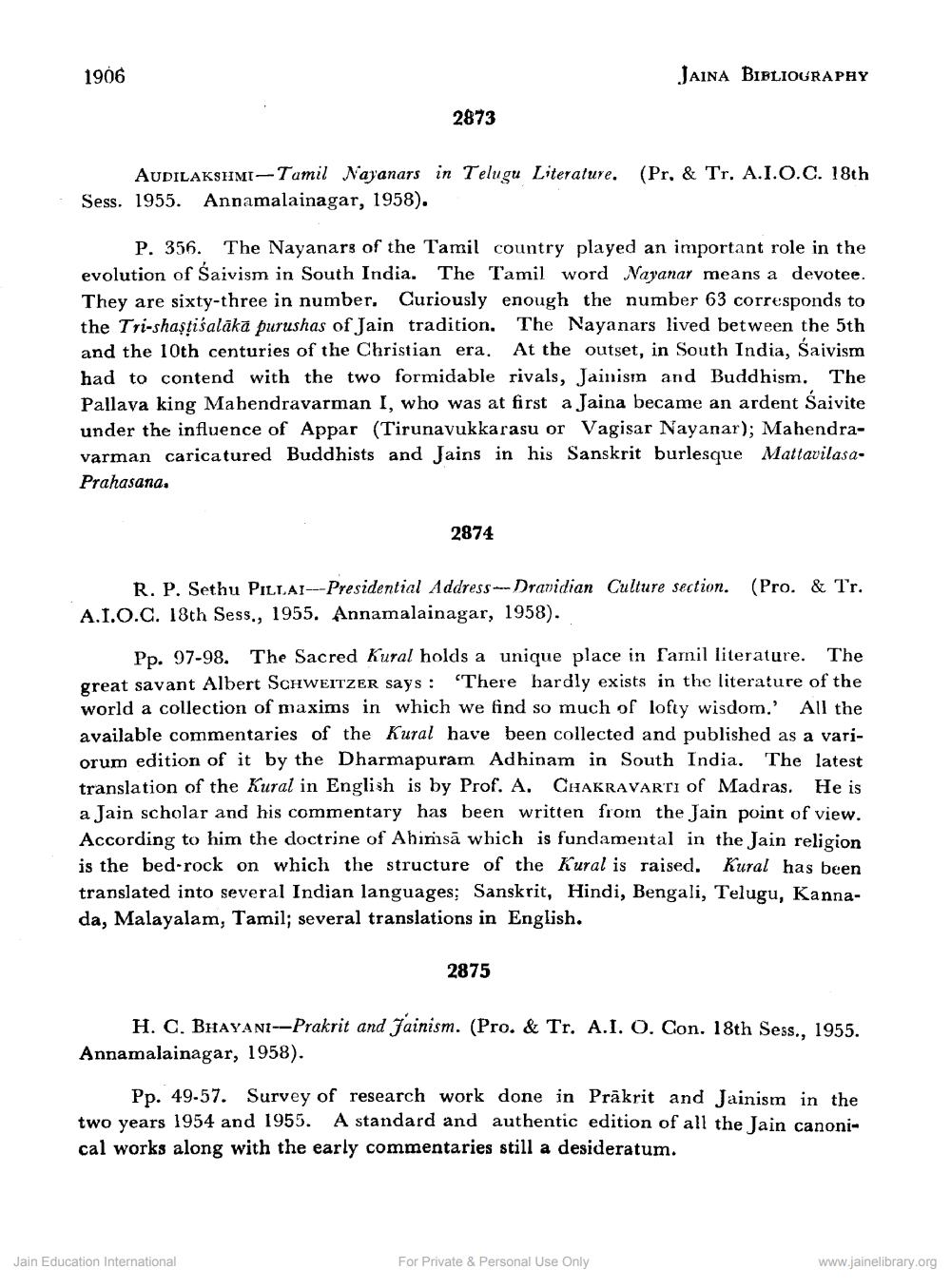________________
1906
JAINA BIBLIOGRAPHY
2873
(Pr, & Tr. A.I.O.C. 18th
AUDILAKSHMI --Tamil Nayanars in Telugu Literature. Sess. 1955. Annamalainagar, 1958).
P. 356. The Nayanars of the Tamil country played an important role in the evolution of Saivism in South India. The Tamil word Nayanar means a devotee. They are sixty-three in number. Curiously enough the number 63 corresponds to the Tri-shaşțiśalākā purushas of Jain tradition. The Nayanars lived between the 5th and the 10th centuries of the Christian era. At the outset, in South India, Saivism had to contend with the two formidable rivals, Jainism and Buddhism. The Pallava king Mahendravarman I, who was at first a Jaina became an ardent Saivite under the influence of Appar (Tirunavukkarasu or Vagisar Nayanar); Mahendravarman caricatured Buddhists and Jains in his Sanskrit burlesque MattavilasaPrahasana.
2874
(Pro. & Tr.
R. P. Sethu PILLAI---Presidential Address --Dravidian Culture section. A.1.O.C. 18th Sess., 1955. Annamalainagar, 1958).
Pp. 97-98. The Sacred Kural holds a unique place in farnil literature. The great savant Albert SCHWEITZER says: “There hardly exists in the literature of the world a collection of maxims in which we find so much of lofty wisdom.' All the available commentaries of the Kural have been collected and published as a variorum edition of it by the Dharmapuram Adhinam in South India. The latest translation of the Kural in English is by Prof. A. CHAKRAVARTI of Madras. He is a Jain scholar and his commentary has been written from the Jain point of view. According to him the doctrine of Ahimsā which is fundamental in the Jain religion is the bed-rock on which the structure of the Kural is raised. Kural has been translated into several Indian languages: Sanskrit, Hindi, Bengali, Telugu, Kannada, Malayalam, Tamil; several translations in English.
2875
H. C. BITAYANI--Prakrit and Jainism. (Pro. & Tr. A.I. O. Con. 18th Sess., 1955. Annamalainagar, 1958).
Pp. 49-57. Survey of research work done in Präkrit and Jainism in the two years 1954 and 1955. A standard and authentic edition of all the Jain canonical works along with the early commentaries still a desideratum.
Jain Education International
For Private & Personal Use Only
www.jainelibrary.org




